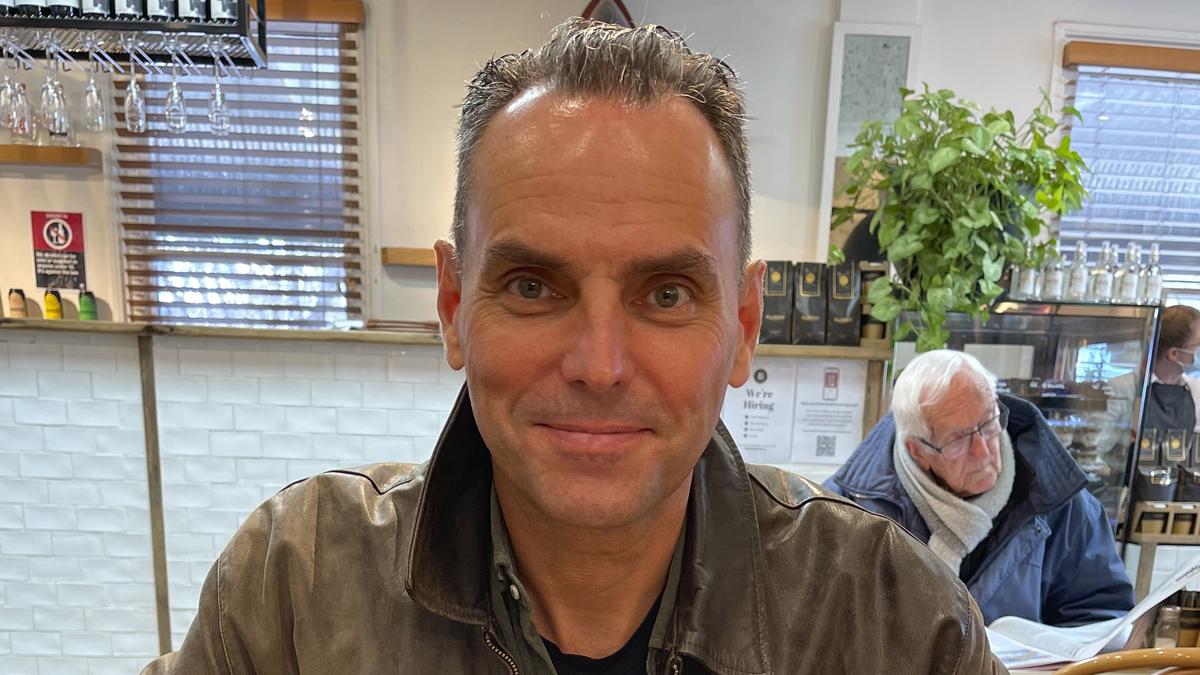A state in Australia has taken a new step aimed at tackling domestic violence — appointing the country’s first official responsible for “Men’s Behavior Change” — as the prime minister has warned violence against women is “a national crisis.”
Australia’s new ‘men’s behavior change’ secretary says the job won’t be easy

- by Admin
- May 30, 2024

Victoria Premier Jacinta Allan announced the role this week, appointing state lawmaker Tim Richardson to what she called “the first position of its kind in Australia.” The role “will focus largely on the influence the internet and social media have on boys’ and men’s attitudes towards women and building respectful relationships,” Allan, from the center-left Labor Party, said.
The role aims to make the state “a safer place for women and children and work to end the tragedy of deaths of Victorian women at the hands of men,” Richardson said in a post on X, adding, “The time to act on men’s violence against women is now and it starts with us men and boys.”
GET CAUGHT UP
Summarized stories to quickly stay informed
“This is not easy work, but it is important, and we can’t afford not to address it and waste a moment,” he wrote.
In the first five months of 2024, there were 31 female deaths in Australia that were allegedly caused by acts of gender-based violence, according to the Counting Dead Women project, a grass-roots campaign that researches and records gender-based killings of women in Australia.
In Australia, 1 in 4 women have experienced violence by an intimate partner or family member, according to government statistics, a statistic broadly comparable to the United States, where 1 in 4 women experience intimate partner violence or stalking, according to the National Coalition Against Domestic Violence. A World Health Organization report in 2021 found that 1 in 3 women will be subjected to physical or sexual violence by an intimate partner or sexual violence from a non-partner in their lifetime.
There has been growing awareness and discussion of violence against women in Australia in recent months, after a number of high-profile killings.
In April, a man killed six people in a shopping center in a Sydney suburb, including five women. Police said while they were investigating the incident, footage of the attack made it “obvious to detectives” that the attacker had been targeting women.
The same month, Australia witnessed a string of killings of three women, allegedly killed by partners or people they know, prompting tens of thousands of Australians to protest the violence.
“A woman has been killed every four days so far this year,” Prime Minister Anthony Albanese said on X last month. Albanese has since described the levels of violence against women in the country as “a national crisis.”
A 2023-2024 report released by the Australian Institute of Criminology in April showed a 28 percent increase in intimate partner homicides committed against women, compared to 2022-2023.
“Australia is finally having a sustained conversation about violence against women and what we can do about it,” Australian law experts Rosalind Dixon and Emma Buxton-Namisnyk wrote on the Conversation, a site that publishes articles written by academics, in April.
However, men and boys are often raised with expectations that women “will meet their needs” and are as a result “conditioned to think it is okay to be angry with women who say no to these expectations.” If this deep-seated issue is unaddressed, they continued, there is unlikely to be a “fundamental change in patterns of sexual and family violence.”
The Victorian state government’s decision to establish a parliamentary secretary for men’s behavior change was welcomed by men’s engagement group No to Violence, and family violence prevention group Respect Victoria, whose acting CEO told state broadcaster SBS it was crucial to involve men in efforts to fight gendered violence.
However, some Australians took to social media to criticize the move, while radio host Ben Fordham dubbed the decision “collective punishment” that is “treating all men like an enemy.”
“The Victorian Parliament already has a minister for women, and now it’s got a parliamentary secretary for men’s behavior,” he said on his Wednesday show — but, he added, there is no Australian “minister for men” to address issues like male suicide.
Meanwhile, Victorian Senator Jane Hume from the opposition Liberal Party cast doubt on the decision’s capacity to effect real change, telling Sky News the role sounded like “a little bit of window dressing around a really important issue, that involves genuine cultural change.”
Richardson, the newly appointed official, acknowledged on social media that there had been “some pretty hectic reactions” to his role. However, he told the Australian Broadcasting Corporation “if that’s people’s reactions just from the title” of his new position “then the focus isn’t in the right area either.”
Everyone has a “shared purpose” to change gender-based behavior that targets women, he said. “If it starts that conversation that’s great … we want to explain why it’s so important.”
The Latest News
-
December 25, 2024‘They’re the idiots who picked me’: Aussie skipper’s hilarious message to relieve pressure on new opening sensation
-
December 25, 2024Aussie path to Champions Trophy glory begins with Ashes clash as schedule revealed
-
December 24, 2024‘Good to go’: Head’s cheeky injury jab as ‘unbelievable’ Aussie run machine gets green light
-
December 24, 2024World No.1 weighs in as doping cases rock tennis
-
December 24, 2024How to watch the NFL in Australia: Full Boxing Day schedule for Netflix’s first ever NFL stream | Sporting News Australia





